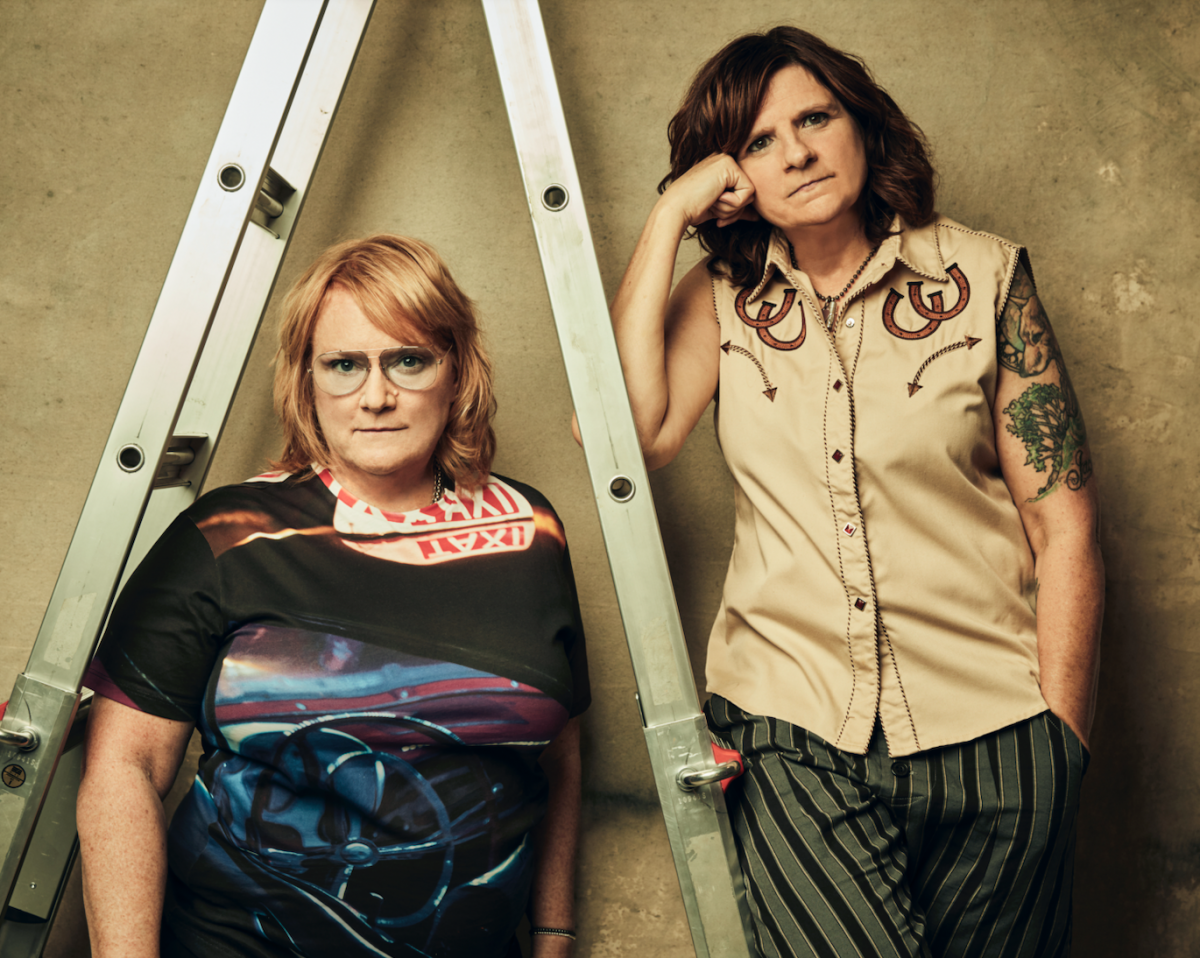By Alan Sculley
Most musicians found their activities curtailed during the pandemic. For the Indigo Girls, the COVID-19 years were a particularly creative time, resulting in a proliferation of current projects.
The duo—Emily Saliers and Amy Ray—recently released a concert film, Look Long: Together, they’re the subject of a new documentary It’s Only Life After All, and they’ve had their music reinvented for the movie Glitter & Doom. Saliers composed music for two stage musicals and Ray released a solo album, If It All Goes South. But it’s the Barbie-effect—from Greta Gerwig’s blockbuster movie featuring the Indigo Girls’ hit song “Closer to Fine”—that finds them playing their biggest venues in years.
It’s quite a schedule, even for an act like the Indigo Girls, who have been consistently active since releasing their first album Strange Fire in 1987. Most bands that debuted around that time—if they’re still together—make albums occasionally (if at all) and are considered heritage acts. That’s not the Indigo Girls.
“We still feel like we are a working band,” says Saliers by phone. “We tour and we make albums and we work, and that feels good.”
This latest spate of activity came on the heels of Look Long, the Indigo Girls’ 16th studio album, recorded pre-pandemic, and released in May 2020. A stirring effort, the record not only features the highly melodic folk-pop that has been the Indigo Girls’ signature on songs like “When We Were Writers,” “Look Long,” and “Sorrow And Joy,” it branches out on rhythmically creative songs that touch on hip-hop (“Shit Kickin’”), Caribbean music (“Howl At The Moon”), and catchy upbeat rockers (“Change My Heart” and “K.C. Girl”).
By the time Look Long was released, the pandemic had scuttled plans for a tour to support the album. Saliers and Ray played some dates in 2022 with violinist Lyris Hung, and then in 2023 returned to performing with a full band. Saliers says in both formats she and Ray play a few songs from the latest album, along with a generous selection of back catalog material.
“Some people like the band and some people like us acoustic or just stripped down,” Saliers said. “We just haven’t had the opportunity to tour with the band because of COVID and we really miss that. So it was good to put out the streaming concert, and it will be great to get back with the band.”
Look Long: Together is a unique concert special that features performances of a career-spanning set of songs (some of which include appearances by guests Becky Warren, Tomi Martin, Trina Meade, and Lucy Wainwright Roche), combined with commentary segments about the songs from Saliers and Ray. Because of the pandemic, the two had to weave together performances from several separate film shoots to create full-band live versions of songs, and extensive editing was needed to create the finished product.
“Amy and I spent hours and hours watching it come together, making suggestions, ‘Let’s do a split screen here,’ ‘The lighting needs to be fixed here,’ ‘This camera angle is no good, let’s use this shot,’ all these meticulous choices you have to make,” says Saliers. “In the end, we worked so hard on it, we were actually a little discouraged at the 11th hour. And then watched it and were really pleased with it.”
The year and a half of working on the livestream took up some of the pandemic-forced downtime. Saliers also spent considerable time working on stage musicals that have expanded her range as a songwriter.
One thing Saliers says she has not done recently is write for another Indigo Girls album. The inspiration is building for Saliers and Ray, who have long used their musical platform to support a variety of social causes, including LBGTQ+ issues, Native American rights, immigration reform, and climate change. What’s top of mind is the Supreme Court ruling overturning Roe v. Wade.
Like many pro-choice advocates, Saliers didn’t think Roe v. Wade would be overturned and was appalled at the demise of legal access to abortion, which had been established law for decades.
“But the truth is there has been a concerted effort [to overturn Roe],” says Saliers, noting that conservative politicians and activists and certain parts of the evangelical community are among those who have mounted a strategic plan to target Roe and other progressive issues. “It’s been going on a long time. So while the thought before was shocking, it’s easy to understand how we’ve come to this place.”
Following the recent election, Saliers and Ray plan to be active in efforts to restore abortion rights, preserve gay rights, and back politicians who support progressive causes.
“As gay person who’s married, I’m like, ‘Is this my country?’ And that’s like a big question to ask,” says Saliers. “I understand the complexities of history and how things, the pendulum swings and reactions, I understand that. But when it affects people’s lives—and there’s this huge disconnect between this small group of zealots making decisions because they’re so removed from the reality of people’s lives—it’s a lot to take in and a lot to live with and a lot to manage.”
